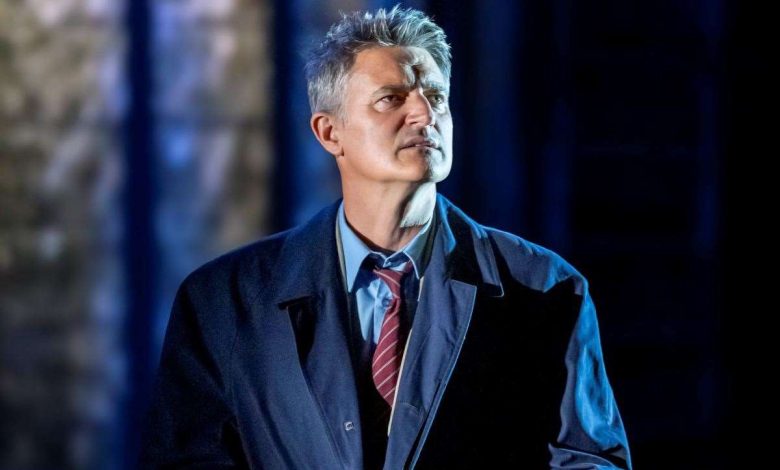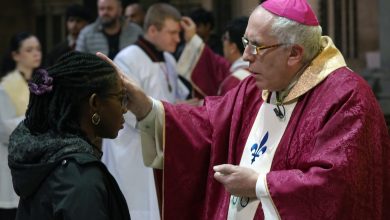Review of ‘Inspector Morse – House of Ghosts’ at Norwich Theatre Royal

Inspector Morse Comes to Life on Stage: A Review of “House of Ghosts”
The beloved detective Inspector Morse has made the leap from television to theater in “House of Ghosts,” the first-ever stage adaptation of the iconic crime drama. Recently performed at Theatre Royal in Norwich, this production brings to life the brilliant, slightly prickly detective who captivated audiences throughout the 1980s and 1990s. While John Thaw’s portrayal of Morse remains etched in the memories of fans, Tom Chambers—known for his work in “Father Brown,” “Casualty,” and as a “Strictly Come Dancing” champion—has taken on the challenging role in this theatrical adaptation. The production offers longtime fans of the Oxford detective a nostalgic return to Morse’s world of complex mysteries, classical music, and English pubs, though with the fresh perspective that live theater provides.
The play’s script comes from Alma Cullen, who wrote for the original television series, ensuring an authentic Morse experience with all the hallmarks fans would expect. The plot begins ingeniously with both Morse and the actual audience watching a production of “Hamlet,” when the actress playing Ophelia meets a very real and disturbing death. From this starting point, we’re drawn into Morse’s university past, encountering old friends and rivals as another murder occurs, creating a complex web of relationships and motives that only Morse can untangle. The narrative masterfully weaves together elements of Morse’s personal history with the present-day investigation, giving viewers deeper insight into the character while maintaining the mystery at the heart of the story. True to form, the plot is filled with the twists, turns, and red herrings that made the television series so engaging, culminating in an unsettling revelation that challenges the audience’s assumptions.
Chambers’ interpretation of Morse presents a more physically expressive detective than Thaw’s comparatively restrained portrayal. His performance features constant facial expressions and bodily contortions as his character wrestles with the case’s complexities. While this approach might seem overly theatrical to those accustomed to Thaw’s subtle mannerisms, it reflects the different demands of stage versus screen acting. The theater requires broader gestures to communicate to audience members in the back row what television can convey in close-up. Despite these stylistic differences, Chambers captures Morse’s essential qualities: his intellectual brilliance, his occasionally prickly demeanor, his appreciation for the finer things in life, and his unwavering commitment to justice. The performance reminds us that iconic characters can be reinterpreted while maintaining their core essence.
The supporting cast provides strong complementary performances, particularly Tachia Newall as Sergeant Lewis. Newall brilliantly captures Lewis as the perfect foil to Morse—more grounded and worldly than his intellectually-minded superior, yet equally sharp in his own way. Their relationship forms the emotional core of the play, just as it did in the television series, with Lewis providing both practical support for the investigation and a sounding board for Morse’s theories. Robert Mountford also delivers a memorable performance as Lawrence, the theatrical director with questionable ethics and a penchant for exploiting his position through the “casting couch.” Mountford manages to make Lawrence simultaneously charming and repulsive, creating exactly the kind of morally ambiguous character that populated the best Morse mysteries. The entire ensemble works together to create the atmosphere of intellectual Oxford, where academic achievement and artistic pursuits often mask darker human impulses.
The stage production effectively translates the visual appeal of the television series to a theatrical setting. While we don’t get the sweeping shots of Oxford’s “dreaming spires” or the vintage Jaguar that became Morse’s signature, the set design cleverly evokes multiple locations from a theater to Oxford colleges to pubs. The play-within-a-play structure is particularly effective, blurring the lines between performance and reality in a way that heightens the mystery. The direction maintains a brisk pace while allowing moments for character development and the building of suspense. Sound design supplements the atmosphere, likely incorporating elements of the classical music that was so integral to Morse’s character. The production demonstrates how the essential appeal of Morse—intelligent mysteries solved by complex characters—can work just as effectively on stage as it did on television.
For devoted fans of the original series and newcomers alike, “House of Ghosts” offers an engaging evening of mystery and character study. The play honors what made Inspector Morse such a beloved figure in crime drama—complex mysteries, rich characterization, and exploration of the darker side of human nature—while adapting these elements for a new medium. As with any good mystery, the production challenges the audience to solve the case alongside Morse, though few are likely to unravel all the threads before the detective delivers his solution. Running until Saturday at Norwich Theatre Royal, this production provides a worthy theatrical chapter in the Inspector Morse legacy. Whether you’re a longtime fan or new to Morse’s world, “House of Ghosts” delivers the intellectual stimulation and entertainment that has always been the hallmark of this quintessentially British detective.









**mitolyn official**
Mitolyn is a carefully developed, plant-based formula created to help support metabolic efficiency and encourage healthy, lasting weight management.